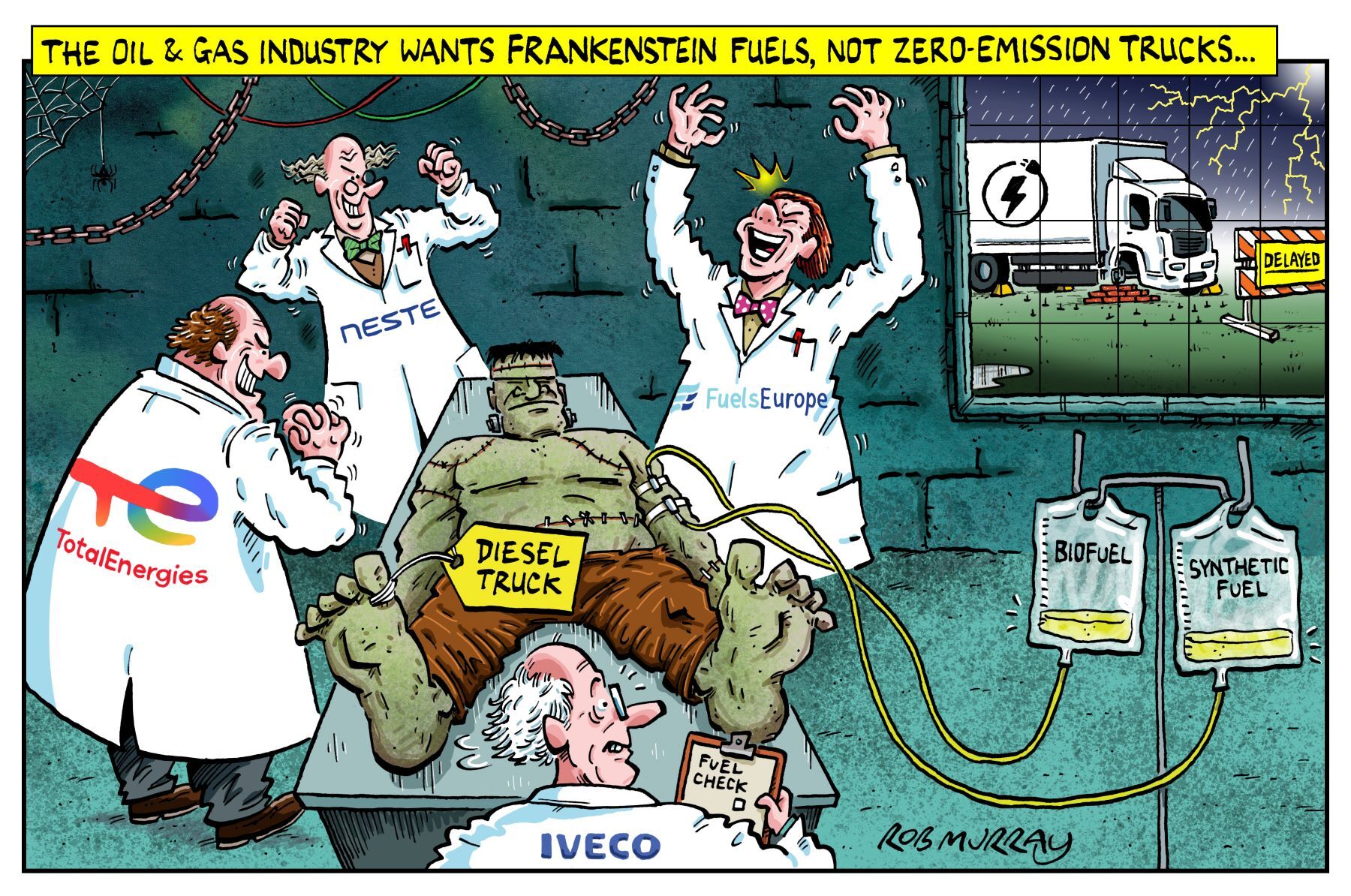The European Union is currently revising its CO2 standards for heavy-duty vehicles (HDVs). This regulation will irreversibly cut the trucking sector’s dependence on diesel. As a result, the oil and gas (O&G) industry is eager to create room for so-called ‘alternative fuels’ in the new law, in spite of the opposition from most truckmakers. To make their case, the O&G industry has been spreading myths to shed a positive light on biofuels and synthetic fuels and to discredit electric trucks.

This briefing aims to debunk the most common myths on trucks included in three recent publications from fuels groups: the European Research Institute for Gas and Energy Innovation’s (ERIG) study on renewable long-haul transport (the ReHaul report), Concawe’s lifecycle analysis HDV comparator tool, and UNITI’s compilation of 17 factsheets about e-fuels. We focus on three different types of fuels: e-diesel (a so-called “e-fuel”), Hydrotreated Vegetable Oil (so-called “renewable diesel”, or HVO) and biomethane, as these are the alternatives to zero-emission trucks most touted by the O&G industry.


